Editor’s note: The information for this story includes excerpts from the citations written from materials provided by the Horace H. Rackham School of Graduate Studies, the Office of the Vice President for Research, the Senate Advisory Committee on University Affairs and the University Press.
Twenty-five faculty members are being recognized Thursday for their teaching, scholarship, service and creative activities. Here are the award categories and the honorees:
Distinguished University Professorships recognize full or associate professors for exceptional scholarly and/or creative achievement, national and international reputation, and superior teaching skills. Created in 1947, each professorship bears a name determined by the appointive professor in consultation with her or his dean. Each professorship also carries an annual salary supplement of $5,000 and an annual research supplement of $5,000. The duration of the appointment is unlimited, and the title — without the salary and research supplements — may be retained after retirement. In addition, newly appointed Distinguished University Professors are expected to deliver an inaugural lecture during the first year of appointment. Recipients include:
• Elizabeth S. Anderson, John Dewey Distinguished University Professor of Philosophy and Women’s Studies, Arthur F. Thurnau Professor, and professor of philosophy and women’s studies, LSA.
• Christin Carter-Su, Anita H. Payne Distinguished University Professor of Physiology, Henry Sewall Collegiate Professor of Physiology, professor of molecular and integrative physiology and professor of internal medicine, Division of Metabolism, Endocrinology and Diabetes, and associate director, Michigan Diabetes Research and Training Center, Medical School.
• Carol A. Fierke, Jerome and Isabella Karle Distinguished University Professor of Chemistry, professor of chemistry, LSA; and professor of biological chemistry, Medical School.
• Susan A. Gelman, Heinz Werner Distinguished University Professor of Psychology, and professor of psychology, LSA.
• Ronald G. Larson, A.H. White Distinguished University Professor of Chemical Engineering, George Granger Brown Professor of Chemical Engineering, professor of macromolecular science and engineering, Biomedical Engineering, and mechanical engineering, CoE.
• Victor B. Lieberman, Raoul Wallenberg Distinguished University Professor of History, professor of history, Department of History, LSA.
• Roderick J. Little, Richard D. Remington Distinguished University Professor of Biostatistics, Richard D. Remington Collegiate Professor of Biostatistics, professor of biostatistics, School of Public Health; professor of statistics, LSA; and research professor, Institute for Social Research.
• Dr. Mark B. Orringer, Cameron Haight Distinguished University Professor of Thoracic Surgery, Cameron Haight Collegiate Professor of Thoracic Surgery and professor of surgery, Medical School.
• Panos Y. Papalambros, James B. Angell Distinguished University Professor of Engineering, Donald C. Graham Professor of Engineering and professor of mechanical engineering, College of Engineering; professor of architecture, A. Alfred Taubman College of Architecture and Urban Planning; and professor of art & design, Penny W. Stamps School of Art & Design.
Faculty Recognition Awards are intended for faculty early in their careers who have demonstrated substantive contributions to the university through achievements in scholarly research and/or creative endeavors; excellence as a teacher, adviser and mentor; and distinguished participation in service activities of the university. Eligible candidates include full professors with no more than four years at that rank, associate professors and assistant professors. Up to five awards of $1,000 each are made each year. Recipients include:
• Anna Grzymala-Busse, Ronald and Eileen Weiser Professor of European and Eurasian Studies, director, Ronald and Eileen Weiser Center for Emerging Democracies and the Weiser Center for European and Eurasian Studies, LSA.
• Dragomir R. Radev, professor of information, School of Information, professor of linguistics, LSA; and professor of electrical engineering and computer science, CoE.
• Dennis Sylvester, professor of electrical engineering and computer science, director, Michigan Integrated Circuits Laboratory, CoE.
• Angela Violi, associate professor of mechanical engineering, chemical engineering, biomedical engineering, and macromolecular science and engineering, Macromolecular Science and Engineering Center, CoE; associate professor of applied physics, Applied Physics Program, LSA and CoE.
• Nils G. Walter, professor of chemistry, and director, Single Molecule Analysis in Real-Time Center, LSA.
University Librarian Achievement Awards are presented for exceptional distinction reflected in active and innovative career achievements in library, archival or curatorial services. The recipient will receive a $1,500 stipend. Awardee:
• Laurie A. Alexander, associate librarian for learning and teaching, University Library.
Distinguished Faculty Governance Awards were established by The Senate Advisory Committee on University Affairs in 1986 and funded by the Alumni Association. The criterion for the award is distinguished service to faculty governance over several years with an emphasis on university wide service. A $1,500 stipend is presented. Awardee:
• Bruno Giordani, professor of psychiatry, professor of neurology, professor of psychology, chief psychologist, Medical School, faculty ombuds.
University Librarian Recognition Awards
honor an individual who holds a primary faculty appointment as librarian, archivist or curator with no more than eight years’ practice in the profession. Selection criteria include active and innovative early career achievements in library, archival or curatorial services. This may include developing specialized services for faculty and students, improving access to information or efficiently managing library and archival resources, or other activities. The recipient is presented $1,000. Awardee:
• Jamie Lausch Vander Broek, learning librarian, exhibits and programming librarian, University Library.
University of Michigan Press Book Awards are presented to members of the university teaching and research staff, including emeritus members, whose books have added the greatest distinction to the Press List. Selections are made from books published within a span of two calendar years. This year’s stipend is $1,500. Awardee:
• John R. Knott, professor emeritus of English, Department of English Language and Literature, LSA.
Distinguished Faculty Achievement Awards honor senior faculty who consistently have demonstrated outstanding achievements in the areas of scholarly research and/or creative endeavors; teaching and mentoring of students and junior faculty; service; and a variety of other activities.
Up to five awards of $1,500 are made each year. Awardees include:
• Mark M. Banaszak Holl, professor of chemistry, LSA; professor of biomedical engineering, and professor of macromolecular science and engineering, CoE.
• R Paul Drake, Henry Smith Carhart Collegiate Professor of Space Sciences, professor of atmospheric, oceanic and space sciences, CoE; and professor of physics and applied physics, LSA.
• Susan A. Gelman, Heinz Werner Distinguished University Professor of Psychology, and professor of psychology, LSA.
• Deborah L. Gumucio, professor of cell and developmental biology, Medical School.
• Laura Kasischke, Allan Seager Collegiate Professor of English Language and Literature, LSA.
The Freeman Devold Miller Collegiate Research Professorship honors exceptional scholarly achievement and impact on advancing knowledge in science, engineering, health, education, the arts, the humanities or other academic field of study. The recipient is presented $2,000. Awardee:
• Michael R. Combi, research professor and distinguished senior research scientist, CoE.
Research Faculty Achievement Awards honor individuals who hold at least a 75-percent appointment at the rank of research associate professor, research assistant professor, associate research scientist or assistant research scientist. Selection criteria include exceptional scholarly achievements, as evidenced by publications and/or other scholarly activities in any academic field of study. There is a $1,000 stipend. Awardee:
• Thomas H. Johengen, associate research scientist, associate director, Cooperative Institute for Limnology and Ecosystems Research, School of Natural Resources and Environment.
Regents Award for Distinguished Public Service, with a $1,000 stipend, will go to:
• Dana M. Muir, Arthur F. Thurnau Professor of Business Law, professor of business law, Stephen M. Ross School of Business.
Distinguished University Professorship, Elizabeth S. Anderson
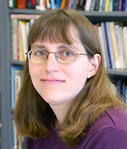
Anderson
One of the most accomplished contemporary moral and political philosophers, Elizabeth Anderson has produced a large body of influential scholarly work, setting the agenda in such diverse areas as egalitarian political theory, democratic theory, feminist and social epistemology, and the philosophy of economics and of race. Her first book, “Value in Ethics and Economics (1993),” applies a new theory of value to such controversial topics as commercial surrogate motherhood. Her second book, “The Imperative of Integration (2010),” which won the American Philosophical Association’s Joseph B. Gittler Award, draws upon philosophy, the social sciences, and law in defense of a revitalized ideal of racial integration. She has published more than 60 papers in top philosophy, law and interdisciplinary journals, which have been reprinted more than 50 times. Her “What is the Point of Equality?” transformed debates about the aims of egalitarianism. Her “Feminist Epistemology: An Interpretation and Defense” helped define the field of feminist epistemology. Anderson’s current projects include a history of egalitarianism from the mid-1600s to the present, and a study of moral learning in the history of abolition and emancipation, for which she was awarded fellowships from the John Simon Guggenheim Memorial Foundation and the American Council of Learned Societies.
Anderson’s undergraduate teaching evaluations are among the highest in her department. She has chaired or co-chaired 25 doctoral dissertation committees and has been recognized with the LSA Excellence in Education Award and the John H. D’Arms Award for Distinguished Mentoring. She has served on committees including the LSA Executive Committee. She also led the design of LSA’s innovative Philosophy, Politics and Economics concentration, of which she was founding director. A fellow of the American Academy of Arts and Sciences, she recently was elected vice president of the Central Division of the American Philosophical Association.
Distinguished University Professorship, Christin Carter-Su
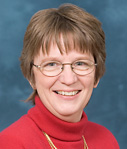
Carter-Su
A leader in endocrinology and metabolism research, Christin Carter-Su has enhanced scientists’ understanding of how molecules, cells, and organs interact. She is internationally recognized for her landmark studies on growth hormone receptor structure and signal transduction pathways in cells. Her studies are relevant to many diseases and syndromes, including short stature, metabolic syndrome, childhood obesity, cancer and rheumatoid arthritis. She has shared her findings in some 130 articles, invited papers, monographs and book chapters. Carter-Su also is an exemplary educator, known for her engaging, interactive teaching style. She has taught cell physiology and endocrinology in various contexts since joining U-M in 1981. Many of her students have won prestigious awards. She has served on 98 dissertation committees and 67 preliminary examination committees. Her adept balancing of scholarly activities, teaching, and service obligations is a model for younger colleagues.
Carter-Su directed the Michigan Diabetes Research and Training Center’s Biomedical Research Division for 15 years. She currently is the center’s associate director and directs several programs. She has served on numerous committees, including the Rackham Executive Board, Gender in Science and Engineering Committee, and Medical School Faculty Affairs Advisory Committee and Executive Committee. She is highly active professionally, serving as associate editor for Endocrine Reviews and on multiple editorial boards.
Her dedication to improving the status of women in science has been recognized with the Sarah Goddard Power Award and the American Physiological Society’s Bodil Schmidt-Nielsen Distinguished Mentor and Scientist Award. She was elected to the American Association for the Advancement of Science in 2012. Other accolades include the Pediatric Endocrine Society’s Eli Lilly Lectureship, the Roy O. Greep Lecture Award from the Endocrine Society, Rackham Faculty Recognition Award, Rackham Distinguished Faculty Achievement Award, and Distinguished Faculty Lectureship Award in Biomedical Research.
Distinguished University Professorship, Carol A. Fierke
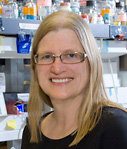
Fierke
Carol Fierke draws from biochemistry, cell biology, enzymology, and physical organic chemistry to research fundamental details of cellular function. She has clarified characteristics of protein and nucleic acid-catalyzed reactions and enhanced knowledge about metal ion homeostasis in cells. In 2012, the American Chemical Society presented her its Repligen Award for her many contributions.
Her laboratory defined the determinants of metal affinity and specificity in carbonic anhydrase, and developed biosensors for the first real-time measurement of cellular concentrations of readily exchangeable zinc ions, opening the way for analysis of cellular zinc homeostasis. She and her team have analyzed catalytic mechanisms and function of important metalloenzymes, which have implications for the development of enzyme inhibitors as therapeutic agents. Fierke has published more than 200 articles in Science, Journal of the American Chemical Society, and other top journals, and has served on editorial boards of the latter publication, as well as Biochemistry and RNA. Active in a number of professional organizations, she was chair of the American Chemical Society’s Division of Biological Chemistry and co-chaired the 2013 American Society for Biochemistry and Molecular Biology national meeting.
Fierke has championed curricular innovations and new courses. She has mentored 18 postdoctoral fellows, 37 graduate students, and 40 undergraduate researchers in her laboratory. She has led the chemistry department as chair since 2005, except when on sabbatical. Much of the department’s upward trajectory in reputation, funding and diversity is due to her leadership. Her efforts to expand opportunities for women and minorities in the sciences have been recognized with the Harold R. Johnson Diversity Service Award, Sarah Power Goddard Award, and Rackham Distinguished Mentoring Award. Fierke, an American Association for the Advancement of Science fellow, has received other honors including the Packard Fellowship, the American Heart Association Established Investigator Award, and Distinguished Faculty Achievement Award.
Distinguished University Professorship and Distinguished Faculty Achievement Award, Susan A. Gelman
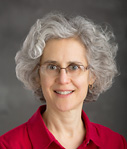
Gelman
Developmental psychologist Susan Gelman has revolutionized understanding of children’s memory, learning, categorization and language by demonstrating that early on young children have a powerful tendency to search for hidden, non-obvious features of things. Gelman’s discoveries debunked the once dominant view that children were concrete thinkers who focused only on the obvious. Through rigorous research, she has demonstrated that young children’s concepts reflect a deep commitment to essentialism — the idea that certain categories of things share an underlying reality. Her research with preschoolers to school-age children in the United States, China and Peru shows that children’s concepts are embedded in rich folk theories built around essentialist beliefs.
Gelman is the author of more than 200 scholarly publications, including “The Essential Child: Origins of Essentialism in Everyday Thought (2003).” A classic in the field, it won the Eleanor Maccoby Book Prize and the Cognitive Development Society Book Award. Her latest book, “Navigating the Social World: What Infants, Children and Other Species Can Teach Us (2013),” which she co-edited, explains how social cognition capacities develop from birth.
Gelman, who joined U-M in 1984, is a demanding educator to whom students respond because of her enthusiasm for the subject matter and her openness. She has chaired more than a dozen doctorate dissertation committees, and supported nine postdoctoral fellows. She has served on the LSA Executive Committee and Committee to Review Tenure Practices, as assistant to the dean of faculty appointments, and as associate dean. She also has served as president of the Cognitive Development Society. Gelman is a fellow of the American Academy of Arts and Sciences, Association for Psychological Science, American Psychological Association, and Cognitive Science Society. She holds the APA Distinguished Scientific Award for Early Career Contribution, and U-M’s Henry Russel Award and Faculty Recognition Award. She was elected to the National Academy of Sciences in 2012.
Distinguished University Professorship, Ronald G. Larson
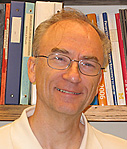
Larson
Ronald Larson is one of the most versatile and accomplished scholars in the field called complex fluids. His work influences fundamental scientific research, state-of-the-art industrial processes, and medicine. Among his research accomplishments is the discovery of a new class of viscoelastic flow instabilities in polymers that affect how they can be shaped into products. His research also has enabled scientists to predict how long branches on polymer molecules affect their flow properties, and hence their ability to be drawn into films or fibers. These contributions can help practitioners design catalyst and chemical reaction conditions necessary to produce desirable branched polymers.
Larson, who worked 17 years at Bell Laboratories before joining U-M in 1996, is a patient and engaging teacher and mentor. Many of his proteges are now faculty members at major universities. He is the author of two influential books, “Constitutive Equations for Polymer Melts and Solutions (1988)” and “The Structure and Rheology of Complex Fluids (1999),” co-author of “ Structure and Rheology of Molten Polymers (2006),” and has written more than 350 scientific papers, one of which won the Journal of Rheology’s best paper award. As Department of Chemical Engineering chair, Larson has enhanced the department’s stature through successful faculty recruiting and an emphasis on collaborative research. He has served on numerous CoE committees and helped launch important initiatives such as the U-M and Shanghai Jiao Tong Joint Institute.
Larson’s accolades include election to the National Academy of Engineering and the Alpha Chi Sigma Award from the American Institute of Chemical Engineers. He also is active in the American Association for the Advancement of Science and American Physical Society, and is a past-president of the Society of Rheology. It recognized his contributions to rheology with its Bingham Medal in 2002.
Distinguished University Professorship, Victor B. Lieberman
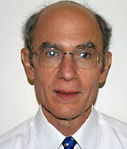
Lieberman
An internationally known scholar of Southeast Asian and world history, Victor Lieberman inspires colleagues and students with his landmark studies, acclaimed for their originality and insight. In his first book, “Burmese Administrative Cycles: Anarchy and Conquest, c. 1850–1760 (1986),” Lieberman used indigenous chronicles, decrees and census records to offer a novel view of political integration in a country hitherto known only from a Eurocentric perspective. It won the Harry J. Benda Prize from the Association for Asian Studies.
Using Burma as a prism, Lieberman expanded his analysis both chronologically and geographically, discovering a pattern whereby small cultural and political isolates cohered to form ever larger, more coherent systems. With accelerating force between 800-1800, such patterns transformed Europe and Asia, anticipating key features of global modernity. These theories Lieberman developed in a series of articles and most particularly in his 1,500-page two-volume study “Strange Parallels: Southeast Asia in Global Context, c. 800-1830.” Volume 1 won the 2004 World History Association Book Prize. Volume 2 secured the set’s status as a classic. The two premier journals of Asian studies each devoted a special edition to Lieberman’s scholarship, three international conferences have focused on his work, and The American Historical Review recently described “Strange Parallels” as “the most important work of history produced so far this century.” Lieberman also wrote “The Hundred-Year Struggle for Israel and Palestine: An Analytic History and Reader (2011)” and has edited four books.
Students note Lieberman’s erudition and describe his lectures as insightful and brilliant. He has an excellent record of service to the Department of History and to the Center for Southeast Asian Studies, where he served as director. Lieberman has received two LSA Excellence in Education Awards, the Richard Hudson Research Professorship, the LSA Excellence in Research Award, and the Distinguished Faculty Achievement Award.
Distinguished University Professorship, Roderick J. Little
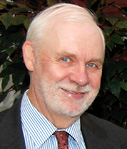
Little
One of the world’s foremost statisticians and survey methodologists, Roderick Little has done pioneering work in the analysis of data with missing values, model-based analysis of sample surveys and causal inference. His advances in the theory and application of statistical methods have impacted public policy and scientific practice in aging, demography, economics, medicine and psychiatry. He recently completed a three-year term as the inaugural associate director for research and methodology and chief scientist at the U.S. Census Bureau, where he enhanced the agency’s research capabilities.
Little co-authored “Statistical Analysis with Missing Data (1987, 2002)” and has written more than 250 articles for such diverse publications as Econometrica, Epidemiology, Journal of the American Statistical Association, New England Journal of Medicine, Population Studies, and Psychological Methods. He helped launch the Journal of Survey Statistics and Methodology and has acted as editor or associate editor for several other journals. Little chaired the Department of Biostatistics for 11 years, during which time it doubled in size and became the highest-rated department in recent National Research Council rankings. He has served on School of Public Health committees, including two terms on its executive committee, and received the school’s Research Excellence Award. A clear and articulate teacher, Little has supervised 27 doctoral students, including 23 since joining U-M in 1993. He has taught numerous short courses at universities and pharmaceutical companies and frequently is invited to give conference keynote addresses. Little served as vice president of the American Statistical Association and has chaired several committees.
Little was awarded the ASA’s Wilks’ Memorial Award and the COPSS R.A. Fisher Lectureship. His influence beyond statistics is reflected in his election to the American Academy of Arts and Sciences and to the Institute of Medicine of the National Academies. He also received the Washington Academy of Sciences Award.
Distinguished University Professorship, Dr. Mark B. Orringer
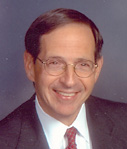
Orringer
A giant in the field of thoracic surgery, Mark B. Orringer has focused on the diagnosis and surgical treatment of esophageal disease, including developing two operations — the combined Collis-Nissen hiatal hernia repair and transhiatal esophagectomy. Since 1976, he and colleagues have performed more than 3,000 transhiatal esophagectomies, an operation now performed worldwide and associated with U-M. The operation has dramatically reduced patient mortality and complications associated with removal of the esophagus.
Orringer served as head of the Section of Thoracic Surgery from 1985-2011. He has served on numerous U-M committees, including the University Hospital Executive Board and the Senate Assembly Development Advisory Committee. He currently serves on the Medical School Admissions Committee and as director of the Esophageal Cancer Destination Program. The author or co-author of more than 260 journal articles and 110 book chapters and editor of six books, Orringer has lectured worldwide and has held key national surgical leadership positions, including president of both the Thoracic Surgery Directors Association and the Society of Thoracic Surgeons. He has been a director of the American Board of Thoracic Surgery and a member of the Residency Review Committee for Thoracic Surgery and has served on various journal editorial boards.
Orringer has received numerous awards, including the Earl Bakken Scientific Achievement Award from the Society of Thoracic Surgeons. He was inducted into the Johns Hopkins University Society of Scholars and consistently is listed among the Best Doctors in America, Guide to America’s Top Surgeons, and America’s Top Doctors for Cancer. Orringer was named U-M’s first John Alexander Distinguished Professor of Thoracic Surgery in 1996. More recently, he received the inaugural U-M Thoracic Surgery Teaching Award, which bears his name, and was named a member of the Medical School’s League of Clinical Excellence in 2012 and League of Educational Excellence in 2013.
Distinguished University Professorship, Panos Y. Papalambros
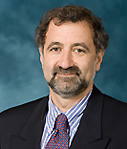
Papalambros
A pioneer in the field of design methodology and optimization, Panos Papalambros has elevated product and system design, long considered an art, to a science through his novel theories, basic and applied research, and partnerships with government and industry. He has taught thousands of engineers to combine classical engineering design principles and modern methods rooted in mathematics and analysis. Among his many advances is his early theory of monotoni city analysis, which enables designers using mathematical models to avoid numerical optimization pitfalls — a critical issue in complex systems. He helped develop design topology optimization, now widely used in engineering practice and pioneered rigorous methods for multidisciplinary systems optimization.
Papalambros founded and directed several U-M centers, including the Automotive Research Center and the General Motors Collaborative Research Laboratory. The centers have helped make U.S. military vehicles safer and enabled the domestic automobile industry to compete at the highest level globally. Author of the influential textbook “Principles of Optimal Design,” Papalambros has created new courses and helped launch the Design Science Doctoral Program. He has supervised 2,000 student design projects and advised 50 doctoral students. As chair of the Department of Mechanical Engineering and Applied Mechanics, he revamped the undergraduate curriculum, tripled external research funding to support graduate education, and improved recruitment and retention of women and minority students.
He served as editor of the Journal of Mechanical Design, and on the editorial boards of top journals. He received the Tau Beta Pi Outstanding Teacher of the Year Award, the Japan Society of Mechanical Engineers Achievement Award, and the Joel and Ruth Spira Outstanding Design Educator Award from the American Society of Mechanical Engineers as well as ASME’s Machine Design Award and Design Automation Award. In 2009, Papalambros, founding director of the CoE Integrative Systems and Design Division, received the Stephen S. Attwood Award, the college’s highest honor.
Faculty Recognition Award, Anna Grzymala-Busse
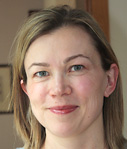
Grzymala-Busse
Political scientist Anna Grzymala-Busse works on the cutting edge of comparative politics. She brings rich historical and cultural knowledge, original insights and thoughtful analysis to her research on post-communist politics in East Central Europe, state development and transformation, and religion and politics. Fluent in English, Czech and Polish, Grzymala-Busse first attracted national attention when she won the 2000 Gabriel Almond Award for Best Dissertation in Comparative Politics from the American Political Science Association.
Her book “Redeeming the Communist Past, The Regeneration of Communist Parties in East Central Europe (2002)” offers a penetrating analysis of the rebirth and adaptation of communist parties in several East Central European states after the collapse of communism in 1989. Her second book, “Rebuilding Leviathan: Party Competition and State Exploitation in Post-Communist Democracies (2007),” won the APSA’s 2008 Ed A. Hewett Prize for Best Publication on the Political Economy of the Former Soviet Union and East Central Europe, and best book honors from the Slavic Studies Association.
Grzymala-Busse has published 20 articles in top journals; a half-dozen chapters in high-profile collections, and reports, reviews and working papers. She has won the APSA Alexander George Award for Best Article in Qualitative Methods, and the APSA 2008 Gregory Luebbert Award for Best Article in Comparative Politics. Grzymala-Busse has directed Weiser Center for Emerging Democracies and Weiser Center for Europe and Eurasia since 2010. Under her leadership, the centers have taken on a prominent role on campus through conferences, guest lectures and support for students and faculty. She leads the Comparative Politics Workshop, a forum for graduate students to present their work. She also serves on numerous university and professional committees, reviews for more than a dozen journals and two academic presses, and also is in demand as a speaker at workshops and conferences around the country. Grzymala-Busse received the Henry Russel Award in 2009.
Faculty Recognition Award, Dragomir R. Radev
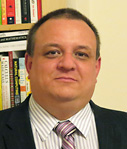
Radev
An international leader in computational linguistics, Dragomir Radev has significantly contributed to machine-based methods to extract content from text, including data mining, Web graph and network analysis, and bioinformatics. Using natural language processing, information retrieval, and machine learning, he makes sense of the exploding volume of digital content. Radev was the first to develop ways to generate informative summaries from multiple online sources, addressing this problem for the first time.
Before joining the faculty in 2000, he worked at IBM, where he co-authored two patents, one of which was for a forerunner to the Watson Q-and-A Engine. Radev has published 125 journal and conference papers, co-authored “Graph-based methods for Natural Language Processing and Information Retrieval” and edited “Puzzles in Languages, Logic and Computation, Vol. 1 and 2.” In 2006, he became the first non-political scientist to win (jointly) the Gosnell Prize for Excellence in Political Methodology, which recognized his pioneering work on topic modeling of political discourse. The Undergraduate Research Opportunity Program honored him with its Faculty Recognition Award for Outstanding Research Mentorship.
In 2006, Radev co-founded the North American Computational Linguistics Olympiad, an annual competition for secondary students. He also has coached a series of U.S. teams and individuals to International Linguistics Olympiad victories. Radev serves as an associate editor of the Journal of Artificial Intelligence Research and as a member of two other editorial boards. He also has served as secretary of the Association for Computational Linguistics, and helped create the ACL Anthology Network, a database of natural language processing and computational linguistics publications, and launched the journal Transactions of the ACL. His awards include the Linguistics, Language and the Public Award from the Linguistic Society of America, which was given to the NACLO organization, and the Distinguished Scientist designation from the Association for Computing Machinery.
Faculty Recognition Award, Dennis Sylvester
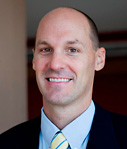
Sylvester
Engineer and entrepreneur Dennis Sylvester has revolutionized semiconductor design, making it possible to build millimeter-scale computers the size of a coarse grain of sand. His advances in ultra-low power processor design have created opportunities for promising applications in environmental monitoring, implantable health care devices, and structural monitoring of buildings and bridges.
While computers continue to shrink, their power consumption has been increasing. Sylvester, who joined the CoE faculty in 2000, pioneered a way to reduce the amount of power that sensor node systems consume after observing that processors are often idle. He proposed new memory structures to reduce power consumption, and efficient energy scavenging systems that can convert power below a billionth of a watt. He co-founded Ambiq Micro, a firm specializing in energy-efficient integrated circuits, and holds 16 patents. Sylvester has written more than 350 articles and conference papers and is co-author of Statistical Analysis and Optimization for VLSI: Timing and Power. He was recognized at the 2013 International Solid-State Circuits Conference as one of the conference’s top 10 contributing authors during 2004-13. Sylvester created the popular Digital Integrated Circuits course for undergraduates and co-developed the graduate-level Advanced High Performance Very-large-scale Integration Design course. His teaching has been recognized with the College’s Vulcans Education Excellence Award, 1938E Award, and Ruth and Joel Spira Outstanding Teaching Award.
Sylvester serves on his department’s admissions committee, coordinates doctorate recruiting, and advises VLSI graduate students. He also founded and directs the Michigan Integrated Circuits Laboratory. As an Institute of Electrical and Electronics Engineers fellow, he has served on numerous IEEE committees and as associate editor of two IEEE journals. His honors include a National Science Foundation Faculty Early Career Development Award, the Semiconductor Research Corporation Inventor Award, the ISSCC Beatrice Winner Award, the CoE Ted Kennedy Family Team Excellence Award twice, and the Henry Russel Award.
Faculty Recognition Award, Angela Violi

Violi
Angela Violi, a pioneer in computational nanoscience in the combustion field, uses multiscale computational methods to study longtime and large-scale phenomena occurring in reactive systems. Working across disciplines, she resolves fundamental technical research challenges and provides researchers new tools to address environmental and health problems.
A member of the CoE faculty since 2006 and head of the Multiscale Molecular Science and Engineering Lab, Violi is an expert on alternative fuels and contributed to a chemical reaction model for the combustion of the jet-fuel surrogate known as JetSurF. She also leads the advanced biofuels and combustion area of the U.S.-China Clean Energy Research Center’s Clean Vehicles Consortium, which is working on a framework for synthesis of next-generation biofuels and blends. Violi was the first to produce simulations of how combustion-generated nanoparticles interact with biomolecular structures such as lipid bilayers and pulmonary lung surfactant, a topic important to human health.
Violi has published 56 articles and four book chapters and presented 50 invited talks. She recently organized a European-U.S. meeting for the National Academy of Engineering. She also serves on the Combustion Science and Technology editorial board. Violi has received the CoE Education Excellence Award created two courses: Energy Processes for Novel Fuels and Fundamentals of Energy Conversion. As a Faculty Ally for Diversity, she has made mechanical engineering a more welcoming field for women and underrepresented minorities. She also has served on numerous campus committees, including the College Rules Committee, and is a member of the Institute for Computational Science and Engineering Executive Steering Committee. Her honors include the International Combustion Institute Bernard Lewis Fellowship, National Science Foundation CAREER Award, Department of Mechanical Engineering Outstanding Achievement Award, and 2013 Henry Russel Award.
Faculty Recognition Award, Nils G. Walter
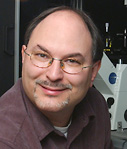
Walter
Working at the interface of chemistry, physics and biology, Nils Walter uses powerful single molecule tools to study the complex molecular processes of ribonucleic acid. As founding director of the Single Molecule Analysis in Real-Time Center, he brings scientists, engineers and biomedical researchers together to work on some of the most relevant questions in medicine and nanotechnology. Walter, who joined the chemistry department in 1999, uses bulk-solution tools and single molecule experimental and computational techniques to monitor the folding and function of non-coding RNAs and RNA enzymes, in vitro and inside the cell.
Walter has published 120 articles in Nature, Nature Methods, Proceedings of the National Academy of Sciences, and Science, among others. His work is supported by multiple funding sources, including the National Institutes of Health and the National Science Foundation. Walter engages students from diverse backgrounds in his interdisciplinary research. Forty-six undergraduate research students have worked in his laboratory. He currently mentors 21 graduate students and postdoctoral fellows from multiple countries and has served on more than 60 dissertation committees. He has created two new biochemistry courses for undergraduates and co-founded the graduate-level Nucleic Acid Biochemistry course. He also has chaired the graduate admissions committees in chemistry and biophysics and hosted several major meetings at U-M, including the 17th RNA Society meeting in 2012, attracting more than 800 participants.
Walter has been a charter member of the NIH Macromolecular Structure and Function B Study Section. He served as section editor of Springer’s Encyclopedia of Biophysics on Single Molecule Tools and is associate editor of Biopolymers and Wiley Interdisciplinary Reviews: Nanomedicine and Nanobiotechnology. An American Association for the Advancement of Science fellow, Walter has been recognized with the chemistry department’s Camille Dreyfus Teacher-Scholar Award and LSA’s Imes and Moore Faculty Award for exceptional contributions toward recruiting and mentoring graduate students from disadvantaged and non-traditional backgrounds in the sciences.
University Librarian Achievement Award, Laurie A. Alexander

Alexander
Laurie Alexander is at the forefront of University Library efforts to engage with learning and teaching activities through original and forward-looking services, programs, and partnerships. She is engaged with strategy development and practical applications, enabling continuous transformation and innovation of the library’s learning and knowledge environments. Her creativity and commitment to excellence in the areas of reference, instruction, learning technologies, media, collections and curricular outreach inspire colleagues.
Alexander, a School of Information graduate, joined the U-M faculty in 1995. As associate university librarian for learning and teaching, she works to ensure the library connects with students in their scholarly practices, helps them to engage with library materials and services, and works with faculty on technology innovations. Under her leadership, the library offers partnerships, instruction, reference services, and facilities focused on the integration of library services and resources into campus learning and teaching initiatives. These efforts position the library to be a campus leader and partner with faculty and students in the development and delivery of high-quality instructional programs.
As director of the Shapiro Undergraduate Library and head of Hatcher research and education services from 2008-11, Alexander oversaw the transformation of the Shapiro lobby into a welcoming, lively center where students meet, study, and work collaboratively. Alexander’s vision was informed by extensive conversations with undergraduate students. Consultation with users is a hallmark of her leadership style. Alexander is known for her team-building abilities and collaborative spirit. She regularly partners with units across campus on new projects, including offering a credit research course with LSA and playing a significant role in launching the Collaborative Domain Group. She also participates in campus initiatives such as the Provost’s Online Education Policy and Strategy Committee, North Quad Programming Task Force, and MiVideo Service. Equally significant is Alexander’s impact as a mentor.
Distinguished Faculty Governance Award, Bruno Giordani
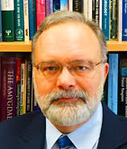
Giordani
Bruno Giordani excels as a scholar and teacher and has contributed significantly to faculty governance in the Medical School, Faculty Senate and the broader campus community. Since joining the faculty in 1984, he has worked to strengthen and clarify the role of faculty within the university and has addressed many important issues, including employees’ need for quality child care.
In addition to serving in multiple departmental leadership roles, including directing the Department of Psychiatry Neuropsychology Division, Giordani represented Medical School colleagues on Senate Assembly in 2002-04 and 2010-12, and in 2004-07 was elected to the Senate Advisory Committee on University Affairs, where he was chair and vice chair. As a member of the SACUA Child Care Task Force, he championed successful reorganization of U-M’s child care services into a unified program. He serves on several advisory boards and committees, including the Undergraduate Research Opportunity Program Faculty Advisory Committee. One of UROP’s first and longest serving mentors, he was recognized with the UROP Faculty Founder’s Award for Outstanding Research Mentorship. Giordani also has served several terms on the Advisory Board on Intercollegiate Athletics and the Office of the Provost Academic Placement Committee for Athletics, and continues to work to promote academic success among student athletes.
A fellow in the American Psychological Association’s Clinical Neuropsychology and Clinical Psychology divisions, Giordani maintains a robust research program focused on early signs of cognitive and behavioral change in medical illness. The program includes work with overseas collaborators and projects in sub-Saharan Africa, where he supervises student research. He has a long history of working closely with the Alzheimer’s Disease Center and serves on the Michigan Great Lakes Chapter of the Alzheimer’s Association board and as the board’s national representative and outgoing chair.
University Librarian Recognition Award, Jamie Lausch Vander Broek
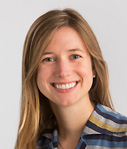
Vander Broek
A rising star in libraries at U-M and nationally, Jamie Vander Broek helps make the University Library’s vast resources accessible to students, faculty members and the public, and encourages library users to engage with those resources more deeply. Appointed learning librarian and exhibits and programming librarian in 2012, Vander Broek provides instruction, reference services, and programming for undergraduates. She assesses students’ information literacy needs and schedules sessions that prepare them to make full use of library resources. She also designs content for digital displays and co-manages the Library Gallery space.
Vander Broek helped launch Omeka, the library’s online exhibit program, and played a significant role in creating exhibit standards and templates. She chairs the MLibrary Exhibits and Programming Group, which works to increase visibility of exhibits across campus. Vander Broek joined U-M as a University Library associate in 2008 and also worked as a curatorial research center librarian at the U-M Museum of Art. She earned a Master of Science in Information degree with a concentration in art and art museum librarianship from U-M. Drawing on her expertise in art and design, Vander Broek is a member of the library’s committee on digital signage and helps shape university-wide policies as a member of the Campus Digital Signage Governance Board. She also is a library liaison to the CoE Center for Entrepreneurship.
As former programming coordinator for North Quad, Vander Broek coordinated the internationally themed academic and residential complex’s common space programming. She planned and promoted more than 70 events during North Quad’s inaugural year. As secretary of the Ann Arbor Book Festival board, Vander Broek promotes literacy, books, and writing to the community. She contributed to the Kerrytown BookFest as vice president and chair of its Volunteer Committee from 2006-09. Nationally, Vander Broek chaired the Art Libraries Society of North America Membership Committee from 2011-13, serves on the society’s Strategic Planning Committee, and presents at regional, national and international conferences.
University of Michigan Press Book Award, John R. Knott
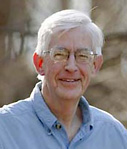
Knott
In “Imagining the Forest: Narratives of Michigan and the Upper Midwest (2012),” John Knott traces the role of forests in the cultural imaginations and lives of people in the Upper Midwest, dating from European settlement in the early 19th century to today. The book, written with the support of a Mellon Emeritus Fellowship, grew from Knott’s fascination with place and with changing perceptions of forests. Among the sources he cites are Ojibwa visions of the natural world and accounts of early explorers and the work of contemporary authors. He also illuminates the development of two competing metaphors — the forest as howling wilderness and the forest as spiritual home.
Knott, who joined U-M’s faculty in 1967, specialized in English Renaissance literature for much of his career and has published numerous articles and books. In the 1990s, his scholarly focus shifted to literature and the environment. He co-edited a special issue of Michigan Quarterly Review titled “Reimagining Place (2001)” and published “Imagining Wild America (2002),” based on the writings of John James Audubon, John Muir and others. He also co-edited “The Huron River: Voices from the Watershed (2000)” and edited “Michigan: Our Land, Our Water, Our Heritage (2008).”
In addition to his scholarly contributions, Knott served as associate dean and acting dean of LSA and as chair of the English Department. He helped launch the Master of Fine Arts program in creative writing, the Institute for the Humanities and the Program in the Environment. Knott has received fellowships from the Carnegie Foundation, the Woodrow Wilson Foundation, the National Endowment for the Humanities, and the American Council of Learned Societies, and a Michigan Humanities Award. He was recognized with LSA Excellence in Education awards twice. Upon his retirement in 2006, colleagues celebrated his career with Responding to the Natural World, A Conference in Honor of John Knott.
Distinguished Faculty Achievement Award, Mark M. Banaszak Holl

Banaszak Holl
Mark Banaszak Holl’s pioneering contributions to fundamental research include advances in organometallic chemistry and materials science, insights into the nanostructure of type I collagen, mechanistic investigation of polymer gene delivery systems, and creation of new drug delivery systems. A recent discovery by his research team addressed a major challenge in the field of drug delivery and is part of his ongoing work on targeted drug delivery of chemotherapy and imaging agents.
His group pioneered the use of atomic force microscopy to image and assess the nanomorphology of type I collagen in mice, sheep, rabbits, cows and humans. In addition to discovering that bundles of collagen have the same nanoscale structure across those species, his lab demonstrated that the nanoscale structure of collagen changes with diseases such as osteoporosis. This work has enhanced understanding of the underlying connection between tissue weakness and disease. In other fundamental research, his group has studied how cells respond to exposure to gene delivery agents, and how this impacts the expression of the desired proteins.
A member of the faculty since 1995, Banaszak Holl holds six patents. He has authored 164 publications, including an article in the Journal of Research in Science Teaching describing how concurrent enrollment in lecture and laboratory enhances student performance and retention. He developed an innovative general chemistry studio course for undergraduates and has taken on leadership responsibilities within the chemistry department and the university, including service as associate vice president for research from 2009-12, when he helped initiate a campuswide transportation initiative. Banaszak Holl, who served on the editorial advisory board of Organometallics, is a fellow of the American Association for the Advancement of Science and a member of the American Chemical Society. His kudos include an Alfred P. Sloan Fellowship and two IBM Research Partnership Awards.
Distinguished Faculty Achievement Award, R Paul Drake
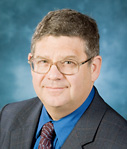
Drake
A pioneer in the field of high-energy-density laboratory astrophysics, R Paul Drake uses high-energy lasers to create and examine processes that occur in supernovas, supernova remnants, and cataclysmic variable stars. He also is an international leader in the field of high-energy-density physics. Early in his career, he conducted groundbreaking experiments on Stimulated Raman Scattering of electrons. Drake, who joined CoE in 1996, directed the Space Physics Research Laboratory from 1998-2002. He designed and led laser experiments to produce a hydrodynamic system scaled to the evolution of young supernova remnants. He also was the first to conduct astrophysically relevant experiments to produce radiative shocks. His work has been a catalyst for researchers internationally.
As founding director of U-M’s Center for Radiative Shock Hydrodynamics and Center for Laser Experimental Astrophysics Research, he received his department’s Research Excellence Award in 2009. Drake authored “High-Energy-Density Physics (2006),” the field’s first textbook. He has produced more than 240 citable publications, including the seminal article on high-energy-density laboratory astrophysics he coauthored in Science in 1999. He serves on the editorial board of the journal High Energy Density Physics. His team’s experiments were featured in the BBC documentary “Hyperspace” and Discovery Channel’s “How the Universe Works.”
Drake has created new courses, and received the Undergraduate Research Opportunity Program Outstanding Research Mentor Award in 2003. A departmental adviser to graduate students, he has graduated 12 doctorate students. An American Physical Society fellow and leader in the American Astronomical Society Laboratory Astrophysics Division, he has advocated successfully for national support of high-energy-density research at universities. He also organizes and contributes to national conferences, and was a member of the National Research Council committee that produced the influential “New Worlds, New Horizons in Astronomy and Astrophysics (2010),” outlining priorities for this decade.
Distinguished Faculty Achievement Award, Deborah L. Gumucio
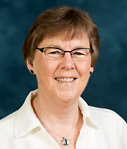
Gumucio
Internationally recognized for her path-breaking research in the area of intestinal development, Deborah Gumucio also founded and led the Center for Organogenesis for 15 years. The interdisciplinary center, the first of its kind, brings together clinical, applied and basic scientists to study organ formation and disease.
Gumucio, who holds three U-M degrees, joined the Medical School faculty in 1991. Her work has impacted several scientific fields. She pioneered the use of phylogenetic footprinting, identifying blocks of conserved sequence within gamma-globin genes that act as regulators of gamma-globin gene expression. This is important because the genes, normally expressed fetally but silent in adults, ameliorate the effects of sickle cell anemia when reactivated. Her lab also participated in an international consortium that identified the gene responsible for the autoinflammatory disease Familial Mediterranean Fever. Her studies of intestinal organogenesis led to the development of tools and mouse lines that have been used in laboratories around the world to delete or activate genes in the intestinal epithelium. Her work has enhanced understanding of many gastrointestinal diseases.
Gumucio has trained 12 graduate students, 12 postdoctoral fellows, and 39 undergraduate researchers, and has served on 67 thesis committees. She received the National Institutes of Health Mentor of Excellence Award for her work with the Organogenesis Training Program, recognized as the top National Institute of Child Health and Human Development Training Program. She also cofounded BioArtography, where photographic images of biological specimens are sold at the Ann Arbor Art Fair to support student travel awards. Gumucio has served on more than 30 Medical School and university committees, and currently is a member of the Human Pluripotent Stem Cell Oversight Committee. In addition to being a fellow of the American Association for the Advancement of Science, Gumucio has received the International Congress on Systemic Autoinflammatory Disease’s Sheldon Wolff Award in Translational Research.
Distinguished Faculty Achievement Award, Laura Kasischke
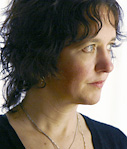
Kasischke
Poet and novelist Laura Kasischke is one of America’s most prolific literary figures. Acclaimed by critics and readers for the technical beauty, honest portrayal of domestic life, imagery, and idiosyncratic narrative that characterize her work, she has garnered many national awards, including the National Book Critics Circle Award for her poetry volume “Space, in Chains (2011).”
A member of the Department of English Language and Literature faculty since 2008, Kasischke earned a bachelor’s degree with high honors and a Master of Fine Arts in creative writing, both from U-M. In a 20-year career, she has published eight collections of poetry, eight novels, and a volume of short stories, “If a Stranger Approaches You (2013).” She has a new novel, “Mind of Winter,” and poetry collection, “The Infinitesimals,” coming out this year. Her poetry books include “Wild Brides” (1992, winner of the Elmer Homes Bobst Award for Emerging Writers), “Housekeeping in a Dream” (1995, Alice Fay DiCastagnola Award), “Fire & Flower” (1998, Beatrice Hawley Award), and “Dance and Disappear” (2002, Jupiter Prize). Her other honors include the University of North Texas’ Rilke Poetry Prize, a Guggenheim Fellowship, and five Pushcart Prizes. She publishes frequently in Ploughshares, The American Poetry Review, The New Republic, Poetry and The Iowa Review. Kasischke’s novels are available in multiple languages. Two, “Suspicious River (1996)” and “The Life Before Her Eyes (2002),” have been made into movies.
Kasischke’s passion for writing is infectious. Her belief in poems and reading poetry widely and assiduously, with an open, curious mind, permeates her teaching, mentoring and advising. A frequent participant in conferences and readings nationally, she devotes many hours to judging submissions for literary prizes and was poetry editor for the 2011 Pushcart Prize Anthology. The university has recognized Kasischke with the Henry Russel Award, LSA Class of 1923 Memorial Teaching Award, and two Rackham Faculty Fellowship Enhancement Awards.
Freeman Devold Miller Collegiate Research Professorship, Michael R. Combi
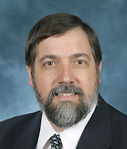
Combi
Michael Combi, a leader in the international planetary science community, has made far-reaching contributions to the understanding of comets, which hold clues to the solar system’s formation. His modeling of water molecules and associated byproducts in comets has revolutionized the field. He also is an authority on theoretical aspects of aeronomy and the physics of rarified atmospheres.
A U-M faculty member since 1989, Combi was the first to use Monte Carlo techniques to study atmospheres of comets, and later applied them to planetary moons and upper atmospheres of planets. He led development of the first hybrid kinetic model to study heating dynamics resulting from the photochemical breakup of gases in cometary atmospheres. Recently, he led a group of students and colleagues in developing a model of neutral and ionized gas, dust and sublimating ice particles and applied it to comets, Mars and Saturn’s moon Enceladus. Principal investigator on numerous National Aeronautical and Space Administration projects, he is a co-investigator on the Visible and Infrared Thermal Imaging Spectrometer and the ROSINA mass spectrometer teams for the European Space Agency Rosetta mission to comet 67P/Churyumov-Gerasimenko. He also is a participating scientist on the Mars Atmosphere and Volatile EvolutioN spacecraft scheduled to launch in late 2013.
Combi has chaired seven doctoral committees, served on 14 others, and has directed the National Science Foundation-funded Research Experiences for Undergraduates in his department. He also has been active in U-M faculty governance and served on various search committees. The author of 110 journal articles and more than 200 other publications, Combi edits the journal Icarus and has served on scientific committees including the National Academy of Sciences’ Committee for Planetary and Lunar Exploration. Combi’s scholarly contributions were recognized with the naming of the Asteroid 17060 Mikecombi. He has received honors including the CoE Outstanding Research Scientist Award and U-M Distinguished Research Scientist Award.
Research Faculty Achievement Award, Thomas H. Johengen

Johengen
Thomas Johengen, an expert in aquatic biogeochemistry and an authority on Great Lakes ecology, has significantly enhanced our understanding of aquatic food webs and processes that affect nutrient availability in fresh water lakes. His research on invasive species has resulted in fundamental changes in ship ballast water policy and practices for the Great Lakes. He also has improved scientists’ ability to predict harmful algal blooms, and has played a critical role in developing and applying in situ sensors in the Great Lakes and coastal oceans.
Johengen received his doctorate in oceanic science from U-M in 1991 and has worked since then at the Cooperative Institute for Limnology and Ecosystem Research, a consortium of nine universities led by U-M that operates under a cooperative agreement with the National Oceanic and Atmospheric Administration and the Great Lakes Environmental Research Laboratory. Director of CILER from 2000-05 and associate director since 2009, he was named its Employee of the Year in 2008. He serves as chief scientist for the Alliance of Coastal Technologies, a national consortium of academic institutions promoting environmental monitoring. Under his leadership, another group, the Great Lakes Observing System, comprised of scientists from regional universities, has improved its telemetry, platforms and sensors, enabling researchers to automate data collection in aquatic ecosystems.
He has published more than 80 journal articles and reports, including one in the Journal of Great Lakes Research, which won the Chandler-Misener Award for best paper from the International Association of Great Lakes Research and another in the Journal of Geophysical Research, which won the Outstanding Scientific Paper Award from the NOAA Office of Oceanic and Atmospheric Research. Johengen also serves on government-sponsored panels and committees. He has co-chaired 10 doctorate and master’s thesis committees and involves students in his field research. He has received the Outstanding CILER Mentor Award twice.
Regents’ Award for Distinguished Public Service, Dana M. Muir
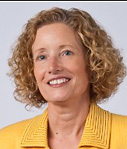
Muir
An expert on retirement systems in the United States, Australia and Europe, Muir is a trusted adviser to government and business on fiduciary issues related to employment, compensation, and benefits law and policy. The U.S. Supreme Court has cited her scholarship, and she has been selected a fellow of the American College of Employee Benefits Counsel in recognition for her significant contributions to the advancement of the employee benefits field.
Muir, who earned A.B. and J.D. degrees at U-M, joined the Ross School faculty in 1993. She has served as a congressional fellow in 2000 and as a member of the Department of Labor Advisory Council on Employee Welfare and Pension Benefit Plans from 2002-04, where she co-chaired a study of defined benefit plan funding. In 2008, she was appointed as a representative of the public on the U.S. Pension Benefit Guaranty Corp. Advisory Committee, and served on the Aerospace Corporation board from 2003-09.
Muir is the author or co-author of more than 30 articles, book chapters and books, including “A Manager’s Guide to Employment Law: How to Protect Your Company and Yourself (2003).” She is editor of the annual supplement to Employees Benefits. Co-chair of a 2010 international conference, she co-edited “Imagining the Ideal Pension System: International Perspectives (2011)” based on the proceedings.
An award-winning teacher, she has served on several Ross School committees, and has been a member of the Center for Research on Learning and Teaching Advisory Board. She is working on the proposed Center on Finance, Law and Policy to study the circumstances that led to the 2007-08 financial crisis and explore new ways to think about finance in the public and private sectors. She also represents U-M on the Ann Arbor Summer Festival Board of Trustees.

